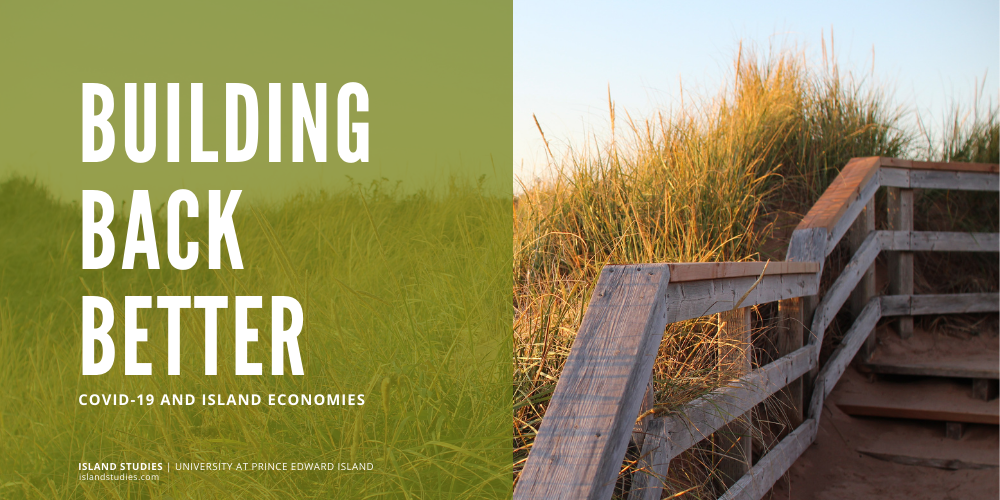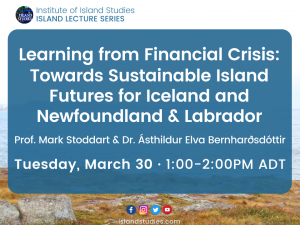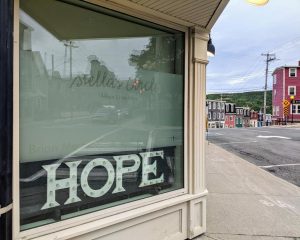For Immediate Release
Charlottetown, Prince Edward Island (April 26, 2021) —

A new report outlines challenges and creative solutions for islands to “build back better” as they recover from COVID-19. The Annual Report on Global Islands 2020 is published by Island Studies Press.
While the ongoing global pandemic may have spared many islands the negative health impacts of COVID-19 thus far, it has undoubtedly served as a wake-up call for islands, such as Prince Edward Island, that rely heavily on tourism.
“It is crucial that islands and their communities recover from COVID-19 not by going back to a business-as-usual scenario but by building back better,” writes Dr. Francesco Sindico, Strathclyde Centre for Environmental Law and Governance, University of Strathclyde, Scotland, in the report. He has identified tourism and food security as two of many areas that need to be included in such a process.
“If resilience is about driving an agenda for a better island following a state of vulnerability, the question becomes: what kind of future does that island want?”
Based on analysis of a comprehensive data set contributed by islanders around the world, Dr. Sindico discusses the importance of shifting towards sustainable tourism and diversified island economies. He suggests that the ongoing pandemic provides islands with an opportunity to take stock, recognize policies that may have contributed to vulnerability, and begin a process to become more resilient and sustainable in the face of present and future crises.
According to Dr. Sindico, the first step in making islands more resilient is to recognize that governance and government is at the heart of many of the current vulnerabilities. He proposes a policy-relevant research agenda to ensure that post-COVID-19 recovery packages enable islands to “build back better” and move towards a more resilient and sustainable future.
Dr. Sindico is continuing to collaborate with UPEI and its Institute of Island Studies through the COVID-19 Island Insights Series, where 24 islands from all over the world are being analyzed not just in relation to how they coped with the pandemic, but also, along the lines of his chapter, on how they can build back better. The final goal of the project is to develop policy recommendations aimed at promoting greater island resilience and sustainability in a post COVID-19 world.
The Annual Report on Global Islands series is published by Island Studies Press at UPEI and edited by Dr. Jim Randall, UNESCO Chair in Island Studies and Sustainability at UPEI. It is produced in partnership with the Foreign Affairs Office of Hainan Province, P.R. China, a sister province to PEI. Released annually since 2017, the series features peer-reviewed chapters by international experts on major topics associated with the economic development of islands.
For more information and to read this and past editions in the Annual Report on Global Islands series, visit https://projects.upei.ca/unescochair/publications/annual-report-on-global-islands.
Media contact:
Bren Simmers Island Studies Press
902-566-0386
ispstaff@upei.ca

